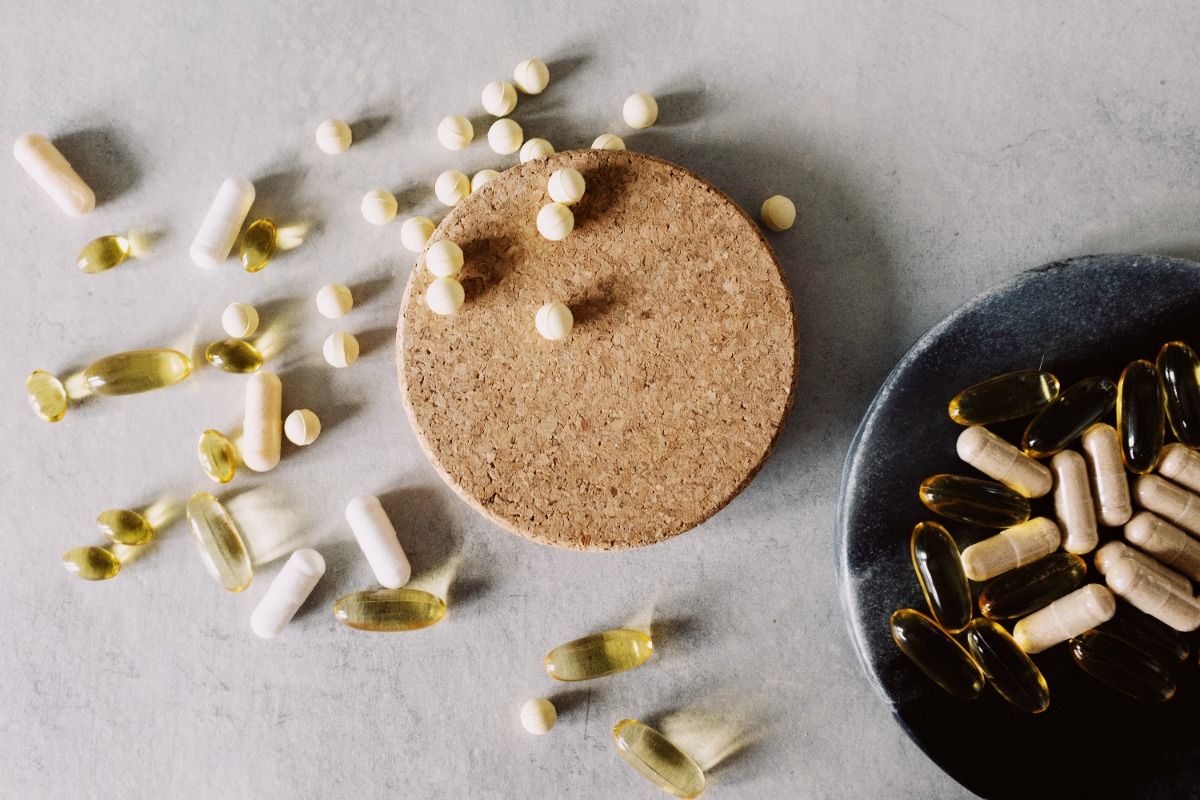
Vitamins and supplements can be a very useful investment for people who need a little extra help getting the nutrition they need. It’s important to buy high-quality supplements, however. With all the different options available today, choosing high-quality supplements makes all the difference.
If you’re deficient in a specific vitamin or mineral, or you need a slightly higher dose of some vitamins than other people, supplements can improve your health and quality of life.
Unfortunately, finding high-quality supplements to accompany your diet isn’t always easy. Limited regulation by the FDA and confusing marketing jargon can make choosing the right supplements tougher than you’d think.
Let’s take a look at some of the most important points to keep in mind when choosing high-quality supplements.

What Are High Quality Supplements and Do You Need Them?
A supplement is a tablet, pill or substance often taken by mouth to “supplement” nutritional content missing from your diet. These products can contain vitamins, minerals, antioxidants, enzymes, amino acids, and even probiotics.
Supplements come in a range of options, including water and fat-soluble vitamins, designed to help your body function properly and remain healthy over time.
You can also get supplements in “proprietary blends”, which combine a variety of ingredients to address a specific need. For instance, vegetarians may get proprietary blends of supplements to replace ingredients they would otherwise get from meat.
Most healthy individuals will be able to access all the minerals and vitamins they need through diet alone. However, certain health conditions, medications, or genetics can make supplements more beneficial to some people. For instance, if you have Crohn’s disease, you might need supplements to help with problematic nutrient absorption.
A CircleDNA test could help you figure out if you are genetically likely to be deficient in certain vitamins or minerals. The DNA test also provides you with information on whether or not you might have higher needs of a specific nutrient, and may therefore need supplements.
It seems most health experts agree that eating a variety of nutritious food is much healthier than using supplements. This is because different foods contain lots of different ingredients, like protein, healthy fats, and fibre, which aren’t accessible in supplemental tablets. The most common reason you might use supplements rather than relying entirely on diet is if you fall into one of the following categories:
- Women who are breastfeeding or pregnant
- Exclusively breastfed infants
- Children or adults diagnosed with nutritional deficiencies
- Individuals with conditions making it difficult for their body to absorb nutrients
- People undergoing bariatric surgery
- Children or adults with restricted access to certain foods
- Certain vegetarians and vegans
How to Know Which Vitamins and Supplements You Need to Take
A DNA test or blood test can help you to determine which kinds of nutrients, vitamins, and minerals you’re lacking.
It’s also worth speaking to a doctor if you notice any symptoms which you believe are reflective of a deficiency, such as trouble concentrating or fatigue. Some deficiencies are more common than others, like vitamin D, which you’ll struggle to get through diet alone. Older adults are also less effective at synthesizing vitamin D due to skin changes that happen with age.
Most of the time, healthy children shouldn’t need many supplements, because they can get a lot of their daily requirements from a varied diet. However, children or teens following a strictly plant-based diet are more likely to have deficiencies in calcium, zinc, iron, B12, and vitamin D.
An iron deficiency can cause serious health complications, so it’s very common for doctors to suggest their anaemic patients take iron supplements. Doctors typically have great recommendations for high-quality supplements.
How are Supplements and Vitamins Regulated?
Once you’ve determined what kind of supplements and vitamins you might need, the most important thing you can prioritize is the safety of your supplements. The FDA doesn’t evaluate the safety or quality of dietary supplements or their ingredients before they enter the marketplace. This means you need to be extra cautious when choosing supplements, and ensure that you choose high-quality supplements.
Lack of regulation means there’s no guarantee any supplement contains what it claims to, and ingredients might vary from one batch to the next. While the FDA does require companies to adhere to Current Good Manufacturing Practices, these rules aren’t always enforced.
Often, the best way to examine the safety of a product is to look at third-party testing practices. While third-party testing isn’t mandatory for supplement manufacturers, many choose to have their supplements examined voluntarily.
You can check for a “Certificate of Analysis” or COA from companies like ConsumerLab, the Banned Substances Control Group, or USP to check the product has been tested for the following:
- Standardization throughout product batches
- Absence of harmful contaminants and substances
- Supplement contents which match the label
Choosing Safe Supplements
Aside from looking for third-party testing results, it’s also worth learning as much as you can about the supplement you’re going to take. One concern many professionals have with getting vitamins and minerals through supplements instead of food is high quantities of some ingredients can become toxic over time. Many vitamins and minerals have a “Tolerable Upper Intake Level” which is the highest intake amount you can have before possible negative effects begin.
The UL for vitamins and minerals often changes based on gender and age, with separate UL recommendations for breastfeeding and pregnant women. Fat-soluble vitamins are often more worrisome in regard to toxicity risk, as excessive amounts can sometimes accumulate in the body.
Be cautious when taking high doses of vitamins, A, D, and E. Each of these substances can cause side effects such as organ damage, irregular heartbeat, and high doses.
Unless advised to do so by a medical professional, it’s important not to exceed the UL of vitamins or minerals extensively. While some side effects may be mild, some can be more serious.
Notably, dietary supplements can also cause side effects even when you’re taking the recommended dose. Reported side effects are usually mild, such as headaches or nausea, and iron supplements occasionally cause digestive distress.
Some ingredients in supplements can also cause more serious side effects, such as increased blood pressure, allergic reactions, and irregular heartbeat.
Extra Precautions for Your Use of Supplements
Since dietary supplements have somewhat limited regulation, there’s a risk it will simply do nothing for your health. If this is the case, you’re not getting your money’s worth from your investment, and you could end up with health issues if you’re relying on a supplement to meet essential nutritional needs. Your doctor may be able to give you some advice on which supplements to use if they’re crucial to your health.
One particularly significant area to be cautious of when choosing supplements is multi-level marketing groups. While there are variations in the structure of these groups, most MLMs operate using a business model in which pyramid-shaped commissions drive sales. Many MLM companies aren’t as reputable as they seem, and most supplements aren’t third-party tested.
While some MLM company products might be safe, they can also contain botanicals and herbs which aren’t always deemed safe for long-term use. The ingredients of these substances aren’t always high quality, and you risk spending a lot of money on products that simply don’t work.
Outside of considering the company you buy from carefully, it’s also worth examining the ingredients on the labels of any supplements you purchase carefully, for things like:
- Vegan certification: if you’re following a vegan diet, you’ll want to double-check to ensure the products you’re buying are vegan.
- Allergens: The Food Allergen protection act determines all foods and dietary supplements must be able to explicitly state the presence of any major allergens.
- Gluten-free: Anyone with a gluten intolerance or celiac disease should choose a product certified as gluten-free.
- Reputation: Reading reviews and testimonials from genuine consumers can help to ensure you’re buying from a reputable company.
- Press: Keep an eye out for any news stories about supplement companies indicating poor-quality ingredients.

Getting the Right Nutritional Bonus
Ultimately, most medical professionals advise the majority of healthy people to seek out the nutrients and vitamins they need through diet. However, there are situations wherein the use of supplements can be extremely valuable. If you’re pregnant, have a problem with a deficiency, or struggle to absorb certain nutrients, your doctor may recommend using supplements.
Taking your time to research both the substances you need in your diet and the companies offering the supplements you might want to buy can help to keep you safe.
Remember, always seek medical assistance if you notice side effects after taking supplements, and stop taking them.






Comments are closed.